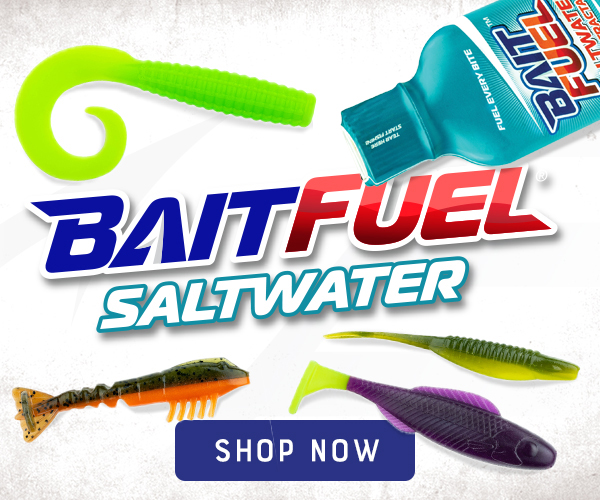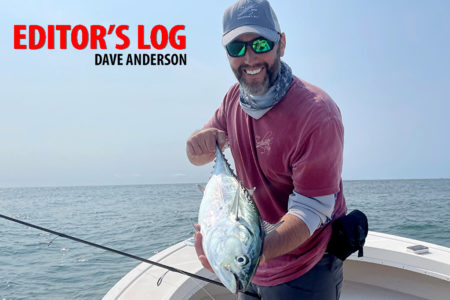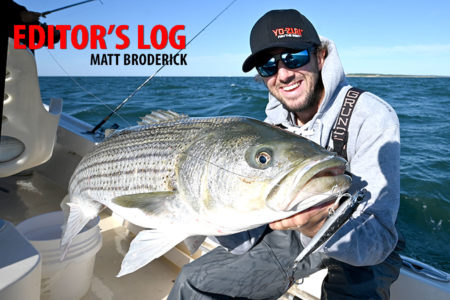The winter nights are long and have a lifeless feel a lot of the time. In the warm season there’s always some animal talking. But as I make my way through the darkness of a midnight salt marsh in January, it could be hours without any animal sounds. I almost feel guilty for disrupting the silence when a hooked striper breaks the glassy water trying to shake my fly. But should I feel worse about disrupting that fish during its winter slumber? Is catching it bad for the fishery or even, perhaps, unethical?
Social media and fishing are such an interesting combination. There’s so much opportunity for community interaction. I recently posted a photo of a January striper, a stunning fish and my heaviest Connecticut wintertime striped bass altogether. It was a healthy fish that fought well and released strong. In the caption I discussed my low-yield approach to holdover fishing. I’m not a huge fan racking up dozens of schoolie bass in heavily trafficked areas. I used to partake in that show but it eventually left a sour taste. In my caption, I called that self-indulgent numbers game unethical. One commenter opined that the fact that I was targeting holdovers at all was unethical.
I wasn’t particularly taken aback, I’ve heard it before. His responses were quite impassioned though, and I decided to move the discussion to private airspace. I legitimately wanted to know why this guy had such a problem with the idea of someone else targeting winter stripers and I was curious to see if he had some valid arguments. Unfortunately, personal attacks and unscientific reasoning followed. He posited that it was wrong to target pre-spawn females; which is a stretch given that stripers spawn in April. And what little data there is coupled with a lot anecdotal evidence indicates that the vast majority of holdover bass are males, though I will admit that it would be a stretch to think the large bass I’d caught was.
It is true, though, that striped bass are very sensitive in the winter. The way they school up makes them highly susceptible to being caught, and low water temperature and salinity are suggested to increase the odds that they won’t survive capture. Poaching is also rampant, this is why I don’t like targeting the high-volume areas. In fact, I’d even argue there is precedent for a closed winter season, as other states have. Connecticut is currently conducting a study to determine movements and release mortality of the Housatonic River holdovers, the results of which could result in a closed season. What little data has been made public doesn’t suggest the mortality was particularly high, but if that should change, I would gladly change my tune. It would be a bummer to miss those cold, silent nights of catching zero to two fish, but could be worth it in the long run. In the meantime it is neither illegal nor – from what data is out there – particularly damaging in any meaningful way. So no, I don’t think holdover fishing is wrong. But what this conversation really made me consider was whether I or any other fisherman has any sort of right or moral authority to dictate what, in fishing, is ethical.
Fishing is a sport in which we use sharp hooks and often fairly light rods to haul in a living creature, then frequently release it back into the water. And, not only do I fish for fun, but I make a large portion of my income teaching others to become better at doing just that. It doesn’t matter if we want to or not, we will kill a few fish. I carry a photo around to show clients who are worried about mortality. It’s a nice November striper that I’m holding half in the water. Though I couldn’t see it at the time, the camera flash illuminated a large cloud of blood around the fish’s head. I did everything right: barbless single hook, hardly any time out of the water, a good revival… sadly there is a pretty strong chance she died. This is a blood sport, whether we take fish home to eat or not.
My realization has been that no one, nor I, has any right to dictate what constitutes ethical or moral fishing. It’s impossible to fish and not negatively impact your quarry. Who am I to say that the angler that goes out twice all winter and hammers a few dozen schoolies each time is unethical, while I go out dozens of times and potentially catch a couple big egged up cows that really need to make it through until April? And why would it be any less ethical to catch a few nice stripers in January versus June?
It’s up to us individually to decide whether we can do something to lessen our impact on fisheries. There are a lot of resources out there detailing what factors are impacting fish populations, how to mitigate personal impact, and when fish might be most at risk. I’m not suggesting that community pressure to work in a specific direction is a bad thing, but if that is made in terms of morality or ethics we’re treading on some pretty shaky ground. In this time when the striped bass population’s health is in question every angler seems to want to point at everyone else as the problem. Perhaps we all ought to spend more time looking at ourselves and what we are doing – based on the available data – and less time looking for someone else to blame. I know I should, as I’m just as guilty of pointing outward as anyone.



